Interview: Diego Luna
The actor-director on his friendship with Gael García Bernal, CANANA Films and his latest short

by Andrea DiCenzo
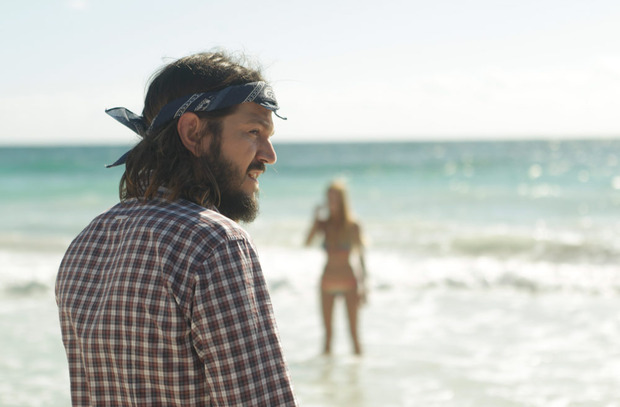
Best known for their daring performances as school friends in the 2001 Mexican hit “Y Tu Mamá También” (And Your Mother Too), actors and filmmakers Diego Luna and Gael García Bernal have championed in a new generation of Mexican cinema to unprecedented critical acclaim. Two of the most successful Mexican actors worldwide, Luna and García Bernal have also carved a cult following around their well-known friendship and business collaborations. Their deep-rooted camaraderie goes way back to the playgrounds of childhood, audition rooms of adolescence and the red carpets of full-fledged movie stardom. They actually go back even further than that—their families (both respected film and theatrical families) were friends before the two men were even born. As a result it seems like their lighthearted banter has never dissolved. “I grew up a little bit I believe—not a lot, but a little bit,” quips Luna.
In a unique directorial adventure, Chivas Whisky invites the audience to step inside the cheekily playful imaginations of Luna and García Bernal in the two-part short film, “Drifting.” Luna directed the first part of the short film before passing the director’s chair to García Bernal to interpret the conclusion. Centered around friendship, fun and the pressures of growing up, it’s as if the games have never ended.
While sitting down with Luna in a London hotel room, the actor-direcor told us about his film company CANANA Films, his first time working with a digital camera, and the pleasures of filming in the middle of the ocean; all over a cup of tea.
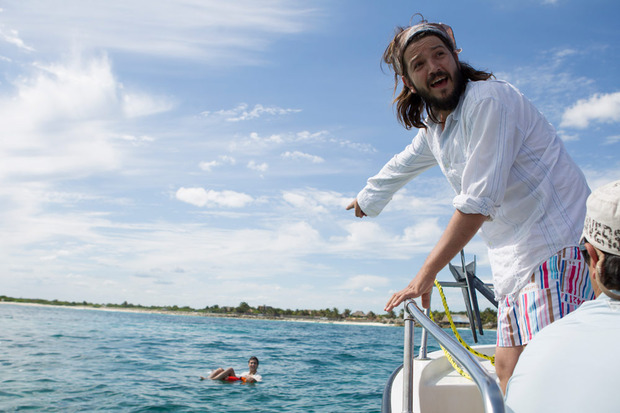
I read that you’re part Scottish? I guess that makes it easy to collaborate with a whisky maker?
Exactly. My grandfather was Scottish and my mother is British so half of my family lives here. I have aunts and cousins so it’s quite nice being here. And I love whisky—but that is the only way to know I am part Scottish because my English is shit and I speak like a Mexican.
You started CANANA Films in 2005 with life-long friends Gael García Bernal, Pablo Cruz and more recently Julian Levin. In seven years you have produced over 20 films, opened a US branch of the company CANANA LA, opened the distribution outlet CANANA Presents and produced a traveling documentary festival Documental Ambulante—not to mention you just got married and are raising two kids. How do you manage so many successful projects?
When we started CANANA I wasn’t married, so I guess I was married to the idea of CANANA. And then CANANA took off. There’s a lot of freedom to do anything you want in Mexico. It’s just that that freedom belongs to a few. It’s a huge country with a big contrast. There is this big inequality so those like us that have the chance to do things, we know we are very lucky.
“My job is so close to not being a job. It has to do with what you believe in, what you care about”
When we got together and decided to start a company, we decided we were not going to compare it to anything that was happening in Mexico. CANANA was more inspired by what we were finding out about what the world was offering. We started traveling a lot with our work as actors—I’m talking about Gael and I—and Pablo had a company in Barcelona and lived all his life between London, Barcelona and Los Angeles, so we wanted that connectivity to be happening at home in Mexico, you know? And we wanted a company where we could be free and celebrate freedom and celebrate the point of view of many different directors. And so we created this.
But it wasn’t like a company that was built to generate work for us. In fact, it is the exact opposite. It is a company that is meant for people to use it. So yeah, we’ve done 20 films but that means many directors, actors, writers and producers have joined us and become involved. We wanted to build a place you could call home and go there and kind of do whatever you wanted to do.
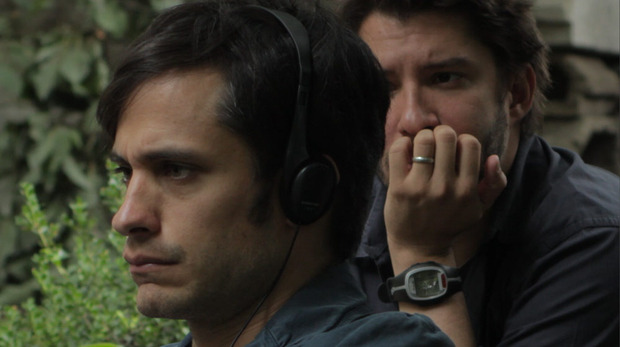
Do you feel the same sort of inspiration working with friends today that you had when starting the company?
Definitely. My job is so close to not being a job. It has to do with what you believe in and what you care about, so the exchange with those that you work with is never just business, you know? In fact, it’s very personal, so you either end up having a friend or you end up not liking someone, and there’s nothing in between. You have to find that connection otherwise you cannot work together. As an actor you have to believe in the point of view of a director; as a director who have to be able to express what your point of view is and invite everybody to join you on that journey. So it’s always about opening up.
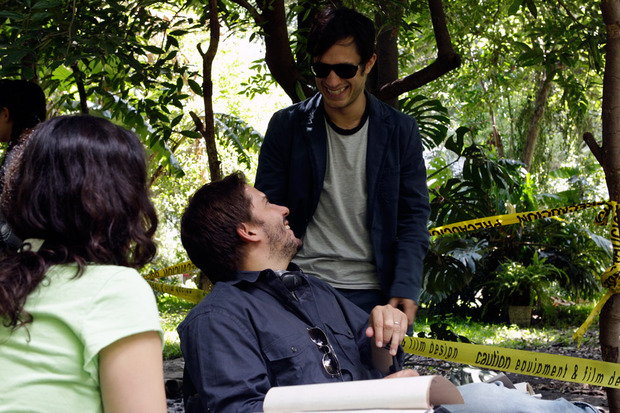
I would say that the format of “Drifting” (passing one film onto the other) is very indicative of your friendship. There has to be a lot of trust passing a film onto someone else. How did you find working with Gael this way?
I took this as a chance to get out and play and to allow yourself all these things that you cannot allow yourself when you are doing a film. When you are doing a film it’s for years of your life. You’ve been working two years on the script and then there is another two years to come after the filming. You have to be very methodic. And very analytical. In this film it was the exact opposite. It was like, “Let’s play!” And we went out and played and it’s refreshing to be able to do those things in life. Cinema is so intense. For example, I am doing a film (Chaves, 2013), during this we talked about Chivas, designed the whole thing, executed the project and it’s out, and at the same time I am still doing this other film! So it’s a good chance to breathe and find a little distraction.
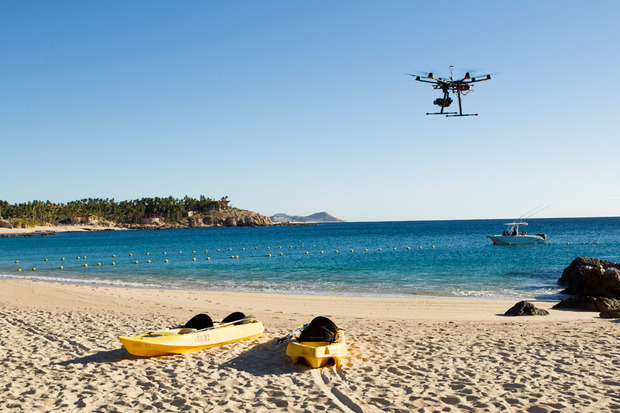
How was filming in Tulum, Mexico?
I always loved the idea of shooting in the water. Tulum is beautiful. It’s an amazing place. We didn’t have to tweak it at all. We were just there. It is a place I really like going. And the idea of shooting in the middle of the water was fun. But not like a film would be shooting in the middle of the water—just to get a camera, make sure it doesn’t get wet and shoot. And in fact it did get wet a little bit. We had to stop for a few minutes (like three times) in order for the camera to dry. I shouldn’t say this because probably the company that we rented the camera from will be pissed off.
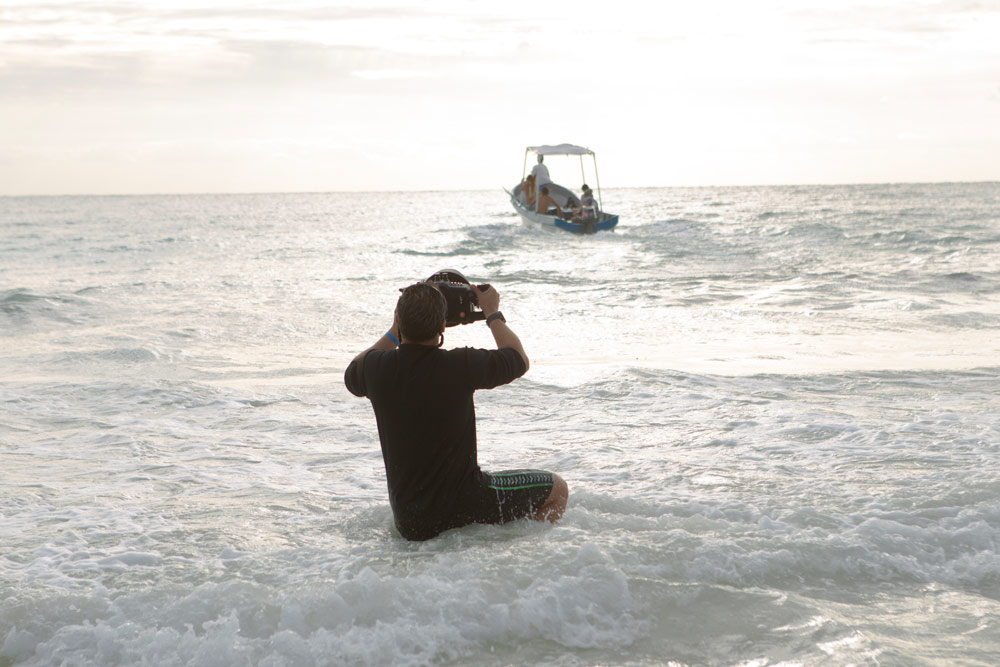
What was your biggest surprise with filming this project?
It was the first time I worked in digital—I have always managed to shoot in film–so it was a nice chance to explore something I didn’t know much about. I had a lot of prejudices about it. I had this idea that cinema is “cinema” and cameras should be rolling and film is “film”—but in fact it was kind of fun to be playing with this little toy. I had a lot of fun and I realized that my prejudices were really stupid. There is a lot that you can do with a digital camera. But now I’m back shooting my “film” film.
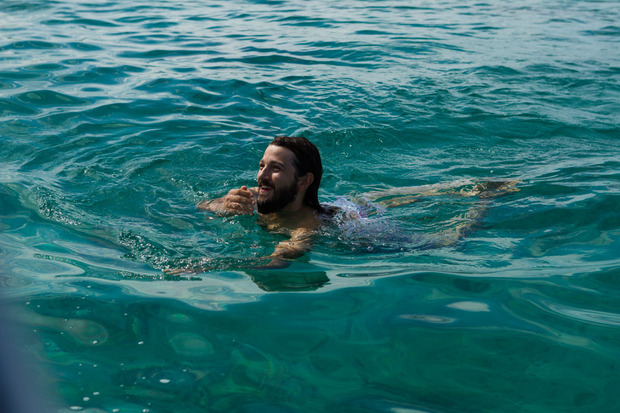
This film speaks a lot about trust and friendship which is very indicative of the process of filmmaking as well. That must be one of the things that makes you still do film today.
It is. It is. I would say doing film is all about trust and conviction. It’s about believing in an idea. I guess more as a director because two, three, four years of your life passes and you have to remember why you choose to do what you are doing. Also because films stick with you forever. Films will be remembered for good and bad forever, you know? The idea of this short is what friends can do for you, you know? When a friend can come and tell you, “Hey, you are fucking up”—you always need those friends around.
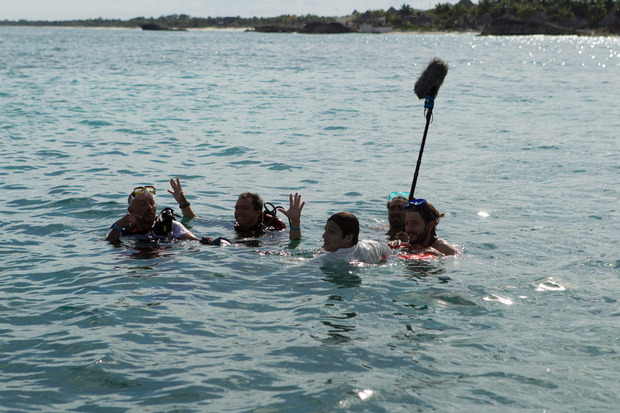
What is one of your favorite aspects about this project?
Really, having to shoot in the water, having the deal with the water. To put an actor in such an extreme and weird situation; floating in the middle of the water, that was a lot of fun. I don’t think we could have done it with any other actors. We were all there acting very normal about putting a guy (Al played by Alexander DiPersia) in the water all day until the other actors jumped in (Pablo Cruz and Ari Brickmann). After five minutes they were complaining, “Oh my god!” They were suffering. It was cold. It was difficult. It’s not the same as being in the water for fun. They had to wait there for the camera to reload or for us to find the right angle.
When the other two jumped in, I was like, “Fuck, this guy has been in the water for eight hours.” And he managed to do it right. Not right, he managed to survive. He never, never, never complained. And he got really cold I think. He was shaking at the end, and I felt horrible.












